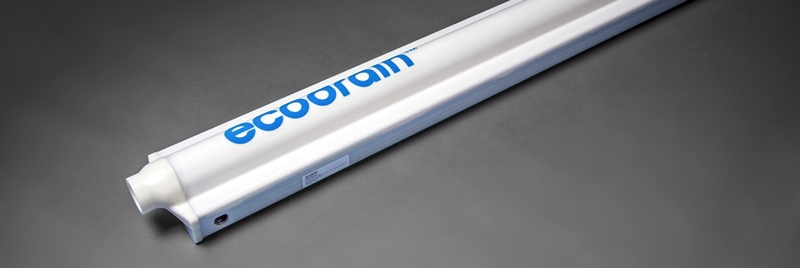
Conserving water is a great way to save some money on your utility bill and is also good for the environment but let's face it: sometimes you just want a nice, hot shower and aren't interested in trying to be as green as possible.
Some estimate that up to 90 percent of the energy used to heat water (via hot water heater) ends up going straight down the drain and into the sewer. When you consider the fact that heating up water is one of the biggest energy drains (no pun intended) in a common household (alongside heating / cooling needs and appliances like dryers), there's a lot of energy literally going down the drain each time you take a shower.
The good news is that there's now something that can be done to help recycle this spent energy. As Digital Trends points out, a new device called EcoDrain aims to reclaim heat energy from used shower water.
While heat recovery systems and drain heat exchangers aren't a new concept, they've traditionally been difficult and expensive to install - especially if you want to retrofit your existing home with such a system. Part of the problem has to do with the fact that systems needed to be installed vertically. For most homes, space is limited and that's simply not an option.
EcoDrain, however, is designed to be installed horizontally. This means users can install it much closer to the source of hot water, or in other words, closer to the shower drain. Best yet, the device is said to be easy to install and doesn't require additional assistance so long as you are the handy DIY type.
The company claims a single EcoDrain system can recover up to 45 percent of the waste heat from your shower. Given the $440 base price, one has to think that you'd make your investment back over time and then some - especially if you're keen on long, hot showers.
https://www.techspot.com/news/57365-ecodrain-aims-to-reclaim-heat-from-used-shower-water.html